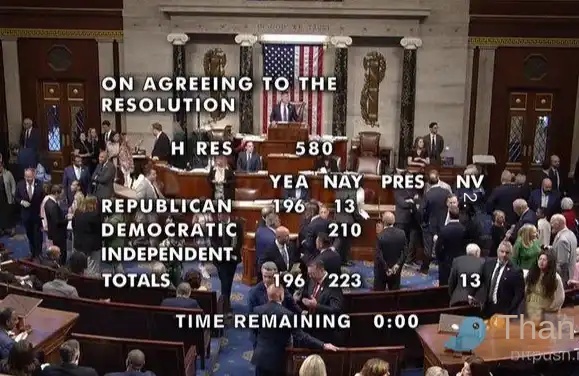Do you need KYC to use Coinbase's Layer2 network Base?
原文标题:《 不是我泼冷水,但用 Coinbase 的 L2 一定要 KYC 吗? 》
Original source: Blec report
Katie Koo, Odaily Planet
2023 Year 2 Month 23 Coinbase Announced that it would be developing a platform for Ethereum called Base L2 network, which it calls "a secure, low-cost, developer-friendly way to build decentralized applications."
If you're not familiar with the concept of Ethereum L2 networks, think of them as "chains" built on top of Ethereum, essentially adding another transaction "layer" on top of Ethereum's proof-of-interest (PoS) network. These L2 are usually used. ETH Serves as the base currency and provides a "cross-chain bridge" to Ethereum for transferring funds.
The most famous Ethereum L2 networks are Arbitrum, Optimism, optimism; And Aztec. Coinbase Selective utilization Optimism Software stack to build its own L2.
From an infrastructure point of view, all existing L2 networks can be considered fairly centralized. Both make use of centralized "sequencer" nodes that build and execute blocks of L2, as well as transfer user actions from L2 to L1. Essentially, these collators are responsible for handling all user transactions on L2.
Due to the appearance of Arbitrum And Optimism The centralised nature of such networks raises questions about how much responsibility the companies behind them have for the content of the transactions they handle. As a result of Arbitrum And The Optimism of the role of the "legitimate monetary medium" has (as yet) been recognised by any government, which has largely escaped regulation.
However, Coinbase For many years it has been recognized as the "medium" between regulation and encryption, and in the FinCEN (Office of Anti-Money Laundering, U.S. Department of the Treasury) is registered as a "Financial Services Business." It can be obtained from Coinbase Learn more about it on the official website. Coinbase Information on compliance.

Coinbase Many financial services and consumer protection laws must be complied with, including:
The requirements of the Bank Secrecy Act. Coinbase Verify the customer's identity and keep it for as long as possible. 5 Annual records of currency transactions and reports on certain transactions
As required by the USA Patriot Act. Coinbase Designate a Compliance Officer to ensure compliance with all applicable laws, develop procedures and controls to ensure compliance, conduct training, and regularly review compliance plans.
But now things are getting a bit worrying. Coinbase It has been passed. Bankless Announced that it would be running at release time. Base The only "sorter" of

That means. Coinbase, a licensed money transfer agency that is required to comply with the USA Patriot Act and the Bank Secrecy Act, will handle all of this. Base L2 transaction.
This leads to a problem: before cross-chain is allowed, all cross-chain to. Base Eg. The money is needed for... Coinbase (KYC) authentication? If so, then. Base Will be the first KYC (first-ever Kyc-only) Ethereum L2.
In interviews, tweets and blog posts, Base In charge of Jesse Pollak And Bankless Iso Coinbase The speakers have been very careful to say that permissionless is built on top of it. However, they never explicitly said they would be able to use it without permission. Base, Coinbase It's obviously tai chi. In fact, in nbsp; Jesse Pollak About Base nbsp; 1 In more than hours of interviews about... KYC Or the issue of user immunity never arose.
I have passed Twitter And Discord Multiple direct to Coinbase And Jesse Pollak The following questions are raised:
- Whether it needs to pass KYC Compliance is the only way to transfer funds. Base?
- If not, then as the only collator, Coinbase How does it plan to comply with existing obligations under the Bank Secrecy Act and the USA Patriot Act?
So far, the only reply I've received is from someone. Base In charge of Jesse Pollak The interaction of:
In this answer, laksa That's a clever way of avoiding my question. Again, he said, It intends to make the web "permission-free, decentralized, open, global and accessible". It sounds like he's saying anyone can use it. Base, but he doesn't say that directly either, which sounds more like a pass. Coinbase A "statement" carefully reviewed by the compliance team. This statement, which he did not mention in his blog post, is of particular concern.
Why? Coinbase When you answer these questions, you are evasive? They don't seem to want it at all. DeFi Users think about these issues and don't worry if developers start building networks because they don't understand them. Coinbase "To confuse the actual situation.
By matching Coinbase Disclosure of information integration, we can get the following information:
Self 2012 Since its establishment in 2005, Coinbase Has been a recognized money transfer institution, subject to the Bank Secrecy Act and the USA Patriot Act.
By law, coinbase. Must apply to all its depositors. KYC Authentication so that the U.S. government can adequately track and monitor its depositors' money.
Coinbase Will become Base L2's unique "sorter," meaning that it will be solely responsible for all transactions across the network.
As the only "collator", Coinbase The ability to block or reorder in any way it sees fit. Base On the transaction. This is censorship. Base The perfect way to trade.
Allows open cross-chain to Base (whether from Ethereum L1 or other L2 and side chains) will mean non- from unknown sources; KYC Funds will be provided by Coinbase The "sorter" processing, which will result in Coinbase Violation of American law.
Therefore, we have every reason to believe that. Coinbase Only allow users to withdraw funds from the site. Coinbase The trading platform itself moved to Base, because Coinbase All the money on the trading platform has gone through. Coinbase nbsp; KYC Verify.
Coinbase Failure to confirm or deny this well-founded conclusion. Maybe until it attracts enough developers and projects. Base Coinbase The answer is likely to be published.
Why is it important that " KYC compliance is required to transfer funds to Base"? DeFi in 2019-2020 The New Year was billed as a way to "fight back against the banks". This was a common theme (or value) in the crypto industry until we discovered it. 2020 At the beginning of the year the development team and its investors retained a lot of centralized control (by managing private keys). From then on, forced. DeFi It becomes an ongoing struggle for teams to be honest about the level of centralized control they have over user deposits. Now, if we see the introduction of a only. KYC (KYc-only) chain, then centralized control is only "one step away" from being handed over to governments and the banks they support.
Original link
Welcome to join the official BlockBeats community:
Telegram Subscription Group: https://t.me/theblockbeats
Telegram Discussion Group: https://t.me/BlockBeats_App
Official Twitter Account: https://twitter.com/BlockBeatsAsia
 Forum
Forum OPRR
OPRR Finance
Finance
 Specials
Specials
 On-chain Eco
On-chain Eco
 Entry
Entry
 Podcasts
Podcasts
 Activities
Activities








